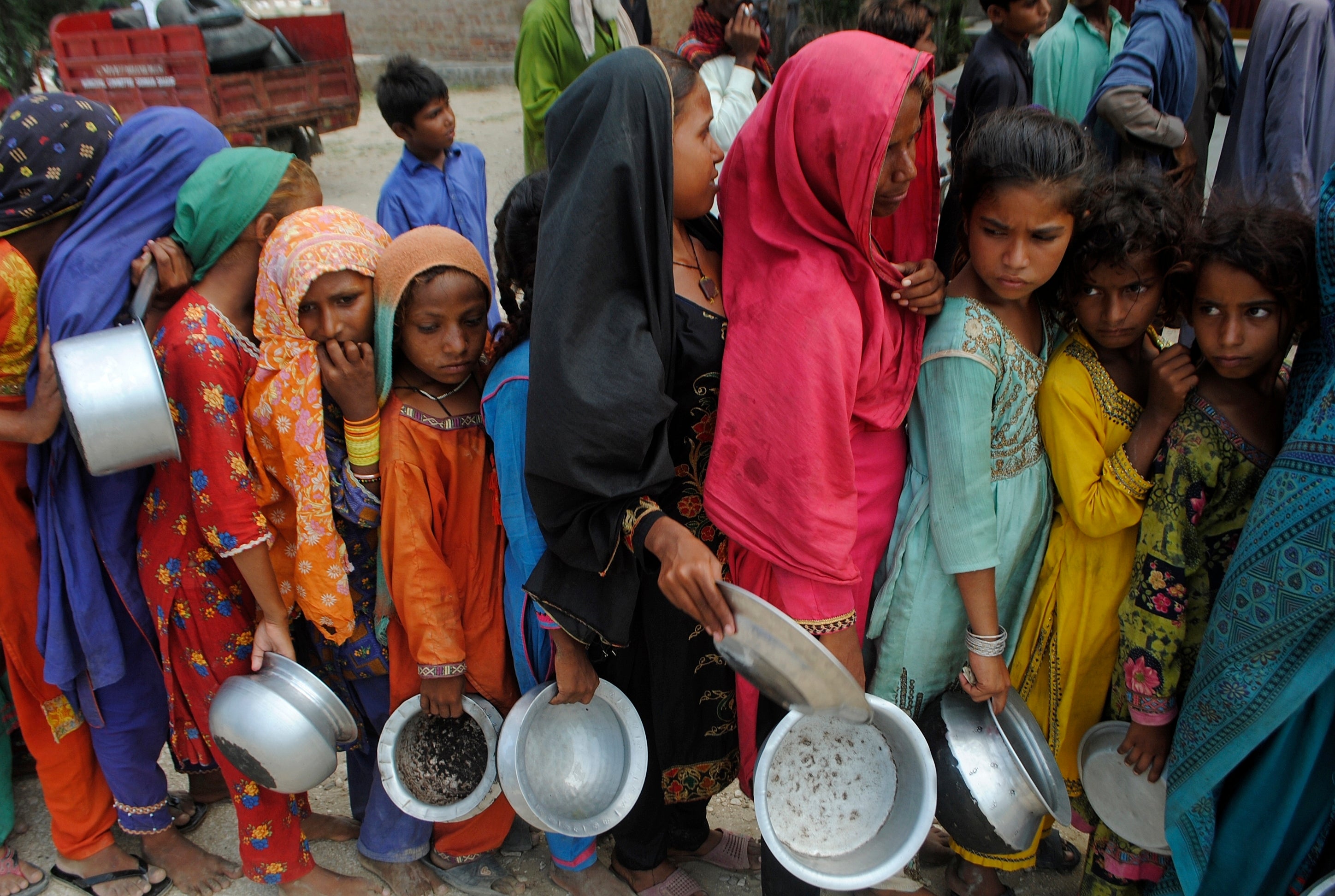Pakistan floods: Rise in dengue and malaria cases has markings of ‘human catastrophe’
‘We are trying our best, but my biggest fear is that we’re sitting with the makings of a human catastrophe,’ says secretary-general of the Pakistan Medical Association
Your support helps us to tell the story
From reproductive rights to climate change to Big Tech, The Independent is on the ground when the story is developing. Whether it's investigating the financials of Elon Musk's pro-Trump PAC or producing our latest documentary, 'The A Word', which shines a light on the American women fighting for reproductive rights, we know how important it is to parse out the facts from the messaging.
At such a critical moment in US history, we need reporters on the ground. Your donation allows us to keep sending journalists to speak to both sides of the story.
The Independent is trusted by Americans across the entire political spectrum. And unlike many other quality news outlets, we choose not to lock Americans out of our reporting and analysis with paywalls. We believe quality journalism should be available to everyone, paid for by those who can afford it.
Your support makes all the difference.Pakistani health officials are warning cases of dengue and malaria will rise in the wake of the devastating floods that have affected 33 million people.
The swelling waters of the Indus River have wreaked havoc as heavy rains and massive flooding unleashed devastation across much of Pakistan, leaving nearly 1,500 dead since the middle of June.
Rescue and evacuation efforts are still underway in some parts of the country, and health experts are reporting a spike in dengue, malaria and severe gastric infections because many displaced people are living near stagnant water.
About 3,830 cases of dengue fever have been reported by health officials in southern Sindh province, with at least nine deaths, but Dr Abdul Ghafoor Shoro, secretary-general of the Pakistan Medical Association, fears the figures do not reveal the true extent of the problem – and that cases will rise.

He told the BBC: “Overall, the situation in Sindh is very bad: we are organising medical camps all over the province. Most of the cases we are seeing now are of dengue patients followed closely by malaria.”
“The dengue burden is the same all over the province and it’s increasing daily. When we checked with the laboratories, the suspected cases are around 80 per cent of tests being done.”
This year’s floods have been one of the worst in Pakistan’s recorded history with several aspects pointing to the human-induced climate crisis as the underlying reason behind the large-scale devastation.
Apart from Pakistan, neighbouring Afghanistan, Bangladesh and India have also witnessed severe flooding this year after a record-breaking heatwave.
South Asia is one of the most vulnerable regions to the worsening impacts of the climate crisis despite very little contribution to the creation of the problem. Both Pakistan and Bangladesh have less than a 1 per cent share of carbon emissions.
Dr Khosa added: “We are trying our best, but my biggest fear is that we’re sitting with the makings of a human catastrophe. So many people are getting sick – it’s dengue cases, malaria and gastro problems and we can’t help them all.
“So what’s going to happen? Of course, there are going to be deaths, and we have to try to save them.”

Join our commenting forum
Join thought-provoking conversations, follow other Independent readers and see their replies
Comments